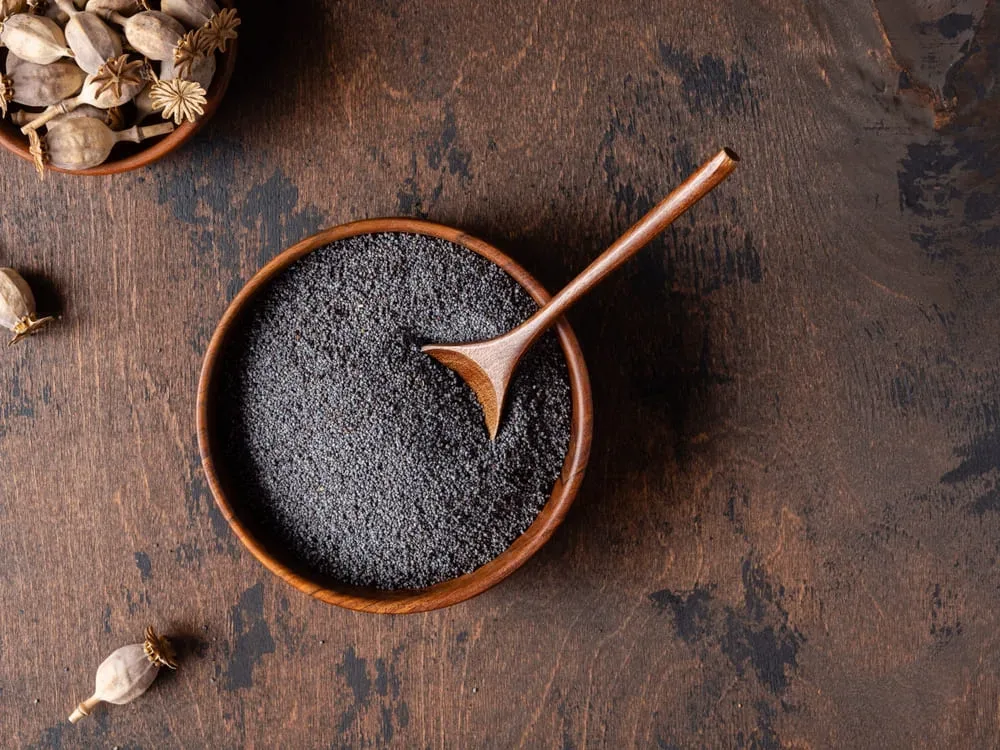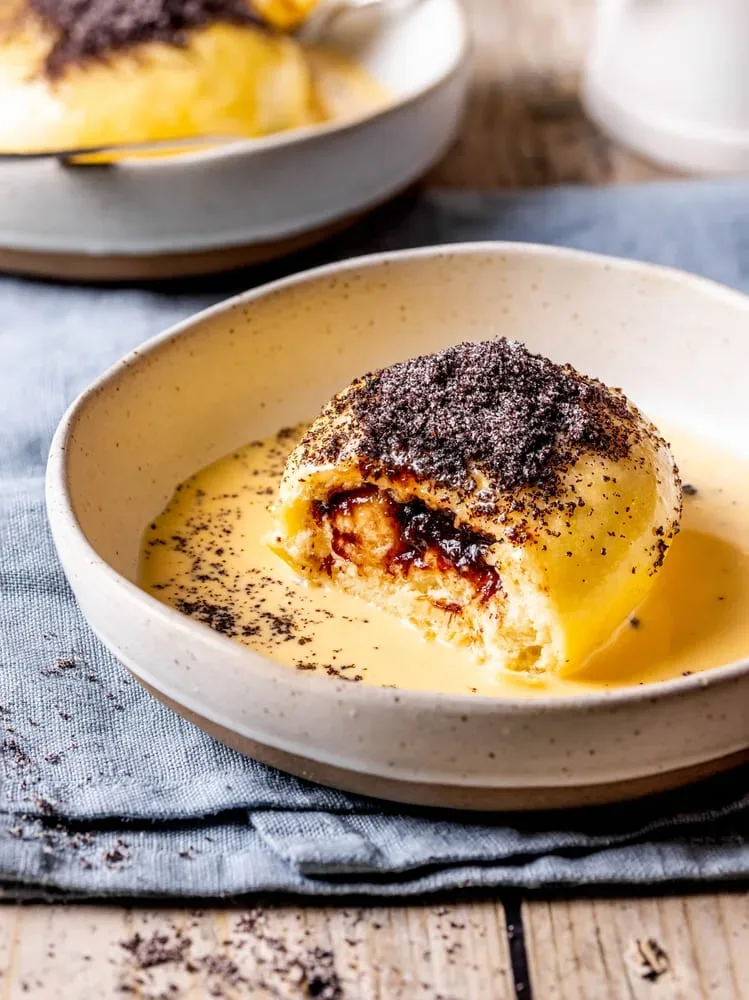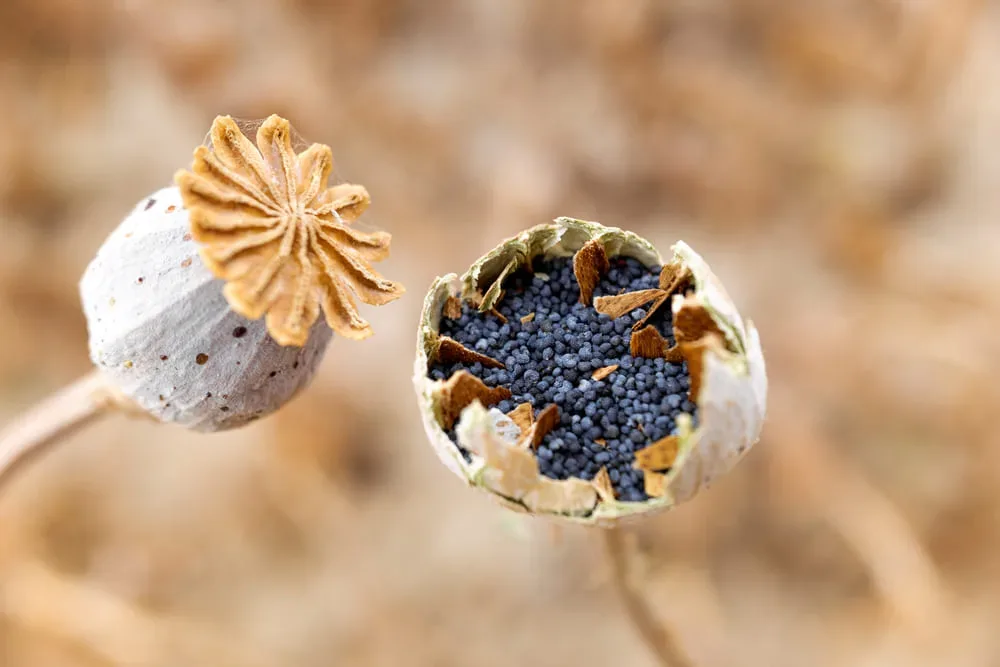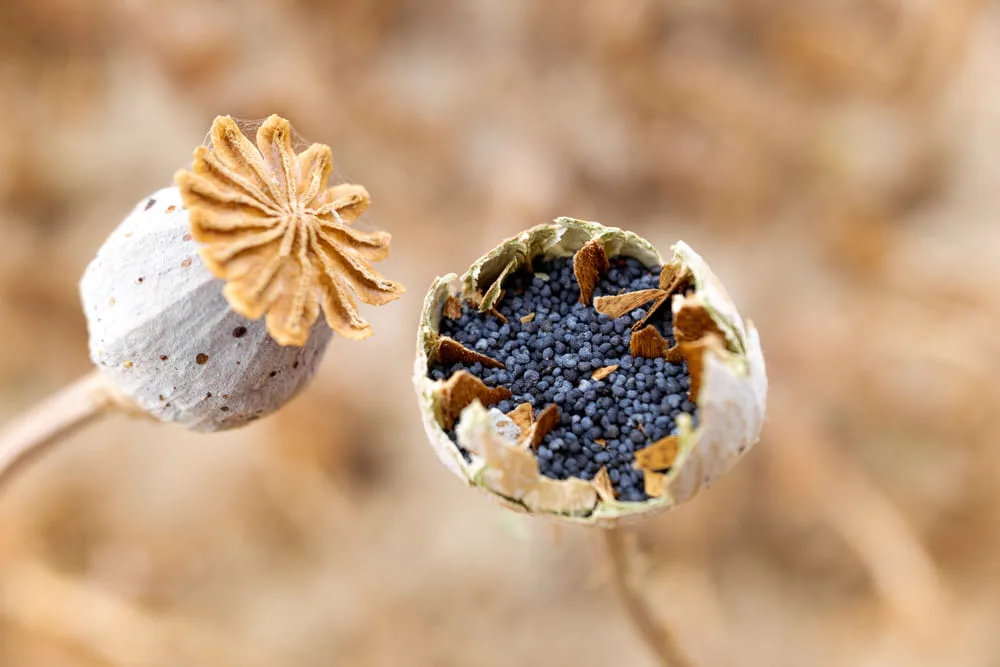What are Poppy Seeds

Poppy seeds, commonly known as khas khas, are small, bean-shaped seeds produced by the opium poppy plant (Papaver somniferum). These seeds have been utilized for years in culinary and medicinal applications. They are safe to consume because they are derived from the opium poppy and do not contain opium’s psychotropic components. Poppy seeds are tiny and spherical, with a smooth bluish-gray to black look. They provide a nutty flavor and a delicious crunch to meals, making them ideal for baking, frying, and garnishing. Inthis blog,we discuss all about poppy seeds, its wide use, rich history, and nutritional value.
Nutritional Value of Poppy Seeds
The nutritional benefits of poppy seeds include calcium, iron, magnesium, fibre, and good fats. These small seeds are particularly rich in calcium, which enhances the human bones, and iron, which plays an important role in red blood cell formation and oxygen carrying capacity. Magnesium contributes to muscle and nerve health, and dietary fiber helps with digestion. In addition, their healthy fats like omega-6 fatty acids perform a significant role in heart well-being and cell membrane. Incorporating poppy seed into your diet can be healthy as it supplies nutriants to the overall health of an individual.
10 Amazing Health Benefits of Poppy Seeds
- Bone Health: It also contains calcium, phospherous and magnesium which makes bones strong and helps to avoid osteoporosis.
- Cholesterol Management: Omega-3 fatty acids reduce low density lipoprotein cholesterol and increase high density lipoprotein cholesterol.
- Digestive Health: Dietary fiber helps in digestion, avoids constipation and promotes a healthy digestive system.
- Cardiovascular Health: Magnesium and Omega 3 fatty acids are good for the heart and help to prevent the formation of plaques in the arteries.
- Vision Improvement: Zinc and antioxidants help to maintain the health of eyes and prevent age related macular degeneration.
- Fertility Booster: Zinc helps to regulate hormones and increase blood supply to the genitals.
- Sleep Enhancement: Magnesium and alkaloids found in poppy seeds help to reduce stress levels and get a better night’s sleep.
- Pain Relief: It is quite normal to have mild sedative effects that help relax muscles and decrease inflammation.
- Kidney Stone Prevention: It has an electrolyte balancing effect and has ability to decrease calcium deposition in kidneys.
- Brain Function: As rich in iron, zinc, and omega-3, poppy seeds help improve memory, concentration, and clarity of mind.
For more, visit Top 10 Nutritional Facts of Poppy Seeds You Should Know.
Khas Khas Benefits: A Deeper Dive
Khas khas or the poppy seeds, which are popular in Indian cuisine, are unique in terms of their functions in the kitchen and as curative agents. Thus, it is added to curries, sweets and breads because of its savoury taste and it also gives rich texture to food. In addition to being a delicious dish, khas khas is known for its traditional remedy which are for digestion, for inducing relaxation, and for building bones due to the high calcium, magnesium, and fiber conundrum. It is still part of Indian household health care management, even though there is a modern twist to it.
Poppy Seeds in the Kitchen: Culinary Uses and Recipes

Poppy seeds are a versatile ingredient in cooking, enhancing both savory and sweet dishes. They are commonly used in baking breads, pastries, and desserts or as a thickening agent in curries. Their earthy flavor and crunch make them a popular garnish for salads and other dishes. Whether in creamy pastes or as a topping, poppy seeds elevate recipes with unique taste and texture. For more ideas, explore How to Use Poppy Seeds: Recipes for Flavorful Dishes.
Which Poppy Seeds Can You Eat?
When researching poppy seeds for culinary purposes, it is critical to understand which varieties are safe and suited for eating. Black, white, and grey poppy seeds are commonly used in cooking and baking. Black poppy seeds are popular in European and Middle Eastern cuisines, particularly in breads and pastries. White poppy seeds, which are commonly used in Indian and Asian cuisine, lend a mild flavour and texture to curries and pastries. Grey poppy seeds, while less common, give baked foods a nutty richness. To discover more about their distinct qualities and culinary applications, see our in-depth blog piece, Which Poppy Seeds Can You Eat?
Poppy Seed Oil and Its Benefits for Skin and Hair
It is also very effective for skin and hair care, and poppy seed oil is a natural product. Swelling with beneficial fatty acids, it helps the skin to become soft and hydrated. Its ability to diminish inflammation, remove cleansing agents, and the rebuilding of damaged skin makes it useful for a natural complexion. When applied to the scalp, poppy seed paste nourishes the hair follicles as moisturiser, slows hair loss, and improves overall hair growth. As a nutrient in hair and skin care that enhances skin radiance and hair fall prevention, Poppy seed oil is a great ingredient that revitalizes and strengthens the skin and hair.
Poppy Seeds During Pregnancy: Benefits and Precautions
Poppy seeds, which are high in folic acid and zinc, help pregnant women by promoting foetal growth and improving prenatal health. To avoid neural tube malformations, folic acid is essential, while zinc boosts the immune system. A doctor consultation is necessary before consuming poppy seeds during pregnancy, nevertheless, because of the possible risk of infection. To properly utilise their advantages, safety must be ensured by expert advice.
Potential Risks and Side Effects of Poppy Seeds
Poppy seeds have nutritional advantages, but they also have risks. such as the possibility of opiate contamination, which can result in issues like false-positive drug testing. Additionally, gastrointestinal problems including bloating or constipation may result from excessive ingestion. It is essential to get high-quality, adequately treated seeds to guarantee safe consumption. Read our blog post Is poppy seeds helpful for health to learn more about their potential health effects.
How are Poppy Seeds Produced?

Poppy seeds are derived from the seed head of the Papaver rhoeas plant, which is cultivated for food and as a source of therapies. The first step in the process is poppy cultivation which grows well when exposed to sunlight, grown in well drained soils and moderately watered. When the seed pod is ready for removal it is carefully dried up and then harvested. After that, the seeds wash and get ready for usage in different ways after the following step. See our blog post How Poppy Seeds Are Produced: For more information on the topics of harvesting and seed extraction, please read on.
Growing Your Own Poppy Seeds: Tips and Advice
When planting poppies, ensure that your yard has sufficient sunlight and soil preparation. Early spring is the best time to plant seeds; it is usually done just beneath the surface of the soil, with the soil moist but not soaked. The poppy crop is beautiful and productive when the plant receives regular attention in gardening, such as weeding and watering, to ensure the seed’s germination to grow well.
Where to Buy High-Quality Poppy Seeds
Purchasing poppy seeds from reliable supliers is crucial to guaranteeing their safety, quality, and purity. Choose products that have been sustainably obtained, are organic, and have undergone meticulous processing to get rid of impurities. Investigate reputable sites with superior selections for convenience and dependability, including POPPY SEEDS, POPPY SEEDS BUY ONLINE, or POPPY SEEDS KERALA. Selecting premium poppy seeds guarantees a safe experience in addition to improving your culinary creations.
FAQs about Poppy Seeds
Is poppy seeds legal in india?
Yes, poppy seeds are legal in India for culinary and medicinal use. However, the cultivation of opium poppy is illegal in India under Section 8 of the NDPS Act of 1985 unless a license granted by the Central Bureau of Narcotics in accordance with Rule 8 of the NDPS Rules of 1985 is obtained. Currently, the government allows the legal growing of opium poppies.
Is it safe to eat poppy seeds?
You can safely eat foods that contain up to 50 grams of poppy seed. When taken as a short-term medication in larger doses, poppies may be safe. However, consuming a lot of poppy seeds could be harmful since they could clog the intestines. Additionally, some people may be allergic to poppy seeds.
Can we eat khus khus daily?
Yes, you can eat poppy seeds (khas khas) every day. Poppy seeds have many health benefits, including being high in fiber, good fats, and vital minerals.
Is poppy seed and KHUS KHUS same?
Yes, khus khus and poppy seeds are the same. Poppy seeds, which come from the opium poppy plant Papaver somniferum, are frequently referred to as “khus khus” in India. Because of their nutty flavour and thickening propertiesand health advantages, they are frequently used in Indian cooking. It is crucial to remember that, when sourced properly, the seeds are safe for culinary usage and free of opium chemicals.
Conclusion
A multipurpose ingredient with a long history, poppy seeds have many culinary applications and health advantages. These little seeds can improve your meals in a multitude of ways, from adding nutrients to your diet to trying out other recipes. This complete guide on poppy seeds will help you know all about poppy seeds, and you need to appreciate their distinct flavor and value responsibly. Incorporate poppy seeds in your diet for a delicious touch to your meals with outstanding health benefits.


